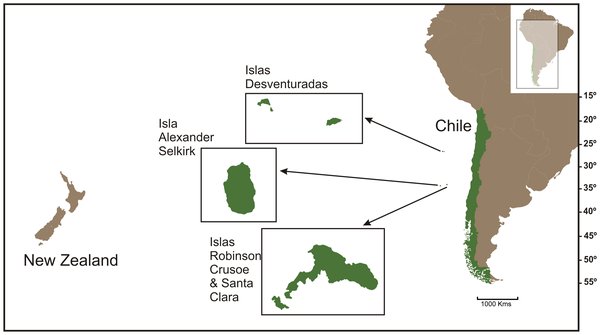Worth A Thousand Words
Chile has one of the largest fishing industries in South America. On the Chilean Juan Fernández Archipelago, fishing for lobster is the main source of revenue (besides tourism) for the inhabitants. Over the course of 400+ years, the Juan Fernández Archipelago fishing industry has seen an ongoing depletion of lobster populations near the fishing ports.
For example, until 1967 local fisherman were able to catch approximately 60 tons of lobster per year, however if you fast forward to 2004, the “lobster catch for all the island groups was declared to be 1 ton.”
This dramatic decrease illustrates the need to find sustainable management strategies which can be employed to help rebuild the lobster stock of the archipelago. This also brings me to the topic of this weeks’ Worth A Thousand Words.
Our featured images for this week come from a recently published manuscript by Tyler Eddy, Jonathan Gardner and Alejandro Pérez-Matus. In the paper, they use fishers’ ecological knowledge to construct the past and future lobster stocks in the Juan Fernández Archipelago.
The first image comes from Figure 1 and shows the location of the islands Robinson Crusoe, Santa Clara and Alexander Selkirk. These volcanic islands make up the Juan Fernández Archipelago and are located 700 km west of the port city Valparaíso.
Lobster fishing practices still use traditional equipment. The next image comes from Figure 2 and shows the gas powered wooden boat and wooden lobster traps used by the fishers on the archipelago.
The manuscript, Applying Fishers’ Ecological Knowledge to Construct Past and Future Lobster Stocks in the Juan Fernández Archipelago, Chile is part of the PLoS ONE: The HMAP Collection.


